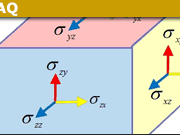5 Problems with Students Self Studying Mathematics
For several years already I have been trying to help students who have been self-studying math. I did this completely free with no compensation for me. I saw this as a very enriching experience. Most of the people I helped came from physics forums. I usually contacted them and told them I might be able to help them. If they decided this was ok, then we would go further. My help usually consisted of providing resources, providing extra problems, checking problems, giving extra explanations, etc. As a rule, I did not want to help people with formal coursework, but only with self-studies.
Most of the self-study projects I engaged in ended up a failure, however. This happened for various very different factors. I will try to go over the most common ones. Whether you are self-studying completely on your own, or have somebody like me to help you, I think the following discussions will make you aware of how difficult self-studying is, and what the likely traps are.
Table of Contents
1) The helper didn’t provide the right help
This needs to be said. I helped a lot of students, but a lot of times, I was not the correct person to help. I enjoy pure mathematics a lot. I like math for its own sake, and this is very clear from the help I give. Furthermore, by my very nature, I find myself not very capable of helping with most high school mathematics. It has been a shock that knowing high school mathematics well does not mean you can explain it well, or that you can explain it in an interesting way to somebody else. So in these cases, I could not help much.
What you should get out of this is that somebody helping you needs to be at the right level for you. If you struggle with basic reordering of equations, getting somebody too advanced may not help you very well, it might confuse you even further. On the other hand, if you want to do very pure math, then getting somebody to help who only cares about applications is probably not a good thing either.
There needs to be a very good bond between student and helper. If that bond is missing, then both student and helper could be interested, but they get nowhere together.
2) Students who go too quickly
This happened most frequently with people who are new to abstract math. I’m thinking of high school students who try their first steps in the territory of pure math. It happened quite often that they told me after two days that they finished the first chapter and understood everything. What’s more, they did all the problems as well. When I ask them to show me their solutions, they were all wrong. The student THOUGHT he understood everything, but in reality, he didn’t.
In studying mathematics, it is very important to take it slow. Reading a fiction book of 1000 pages will be much quicker than reading an abstract math book of 50 pages. Case in point: I once finished 1000 pages of a neat fantasy book in one day, but I struggle to do more than 5 pages of mathematics in that same time frame!
In studying math, every statement needs to be chewed on very carefully. It needs to be spit out and chewed on several times. This takes time. A lot of time. This is normal. Don’t think you can understand an analysis book in 2 months, there just isn’t enough time for that. Especially if you self-study.
3) People get discouraged
Naturally, if your progress is 5 pages a day (at most!), then you’ll start calculating. You might calculate that it will take you more than half a year to finish one single math book! This is discouraging. Very discouraging. This is why many people stop.
Also, math is hard. Very hard. You will regularly hit walls. You will regularly see exercises which you are completely unable to solve. And when this happens 10 times in a row, you get discouraged. And you quit.
If your hobby is collecting stamps, then you can see your collection of stamps growing every day (hopefully). But with math, your improvements will be minimal. You won’t see any improvement from day to day. And after a while, you just give up since things are too difficult. You DO improve, however, but this is not easily apparent. But if you keep detailed records of your math adventures, then looking back for 2 or 3 months will reveal that you have grown a lot since then. Math never becomes easy, however. The only easy math is the math you already know.
4) Life gets in the way
Studying math is something very intensive. You will need at least one hour every day. This is sometimes possible at first, but soon after that you end up in the hospital, you change your job, you find a new lover, etc., and what is possible first is not possible after. Life got in the way of mathematics. There’s little you can do about this. If you have more important priorities than math, then you can’t do the math. There are only 24 hours in a day after all, most of which we sleep.
5) You get bored
So you study math, and very quickly you see that it is not what you thought it was. You get bored of it. This happens very frequently since many people don’t really know what science is about before they try it. Once they do try it, it’s not what they think it is so they drop it. No need to shame yourself for this if this happened to you. You found out something new: that math is not for you. You tried and it didn’t work, but at least you tried and you know you’d rather do something different.
Conclusion
As you see, self-studying math is difficult. Studying it outside a formal classroom setting is even more difficult. Many people try it, but many stop, mostly for the reasons you see above. But please don’t be discouraged from studying math. Who knows? Maybe things will work out for you. You don’t know until you try.
Advanced education and experience with mathematics








Leave a Reply
Want to join the discussion?Feel free to contribute!